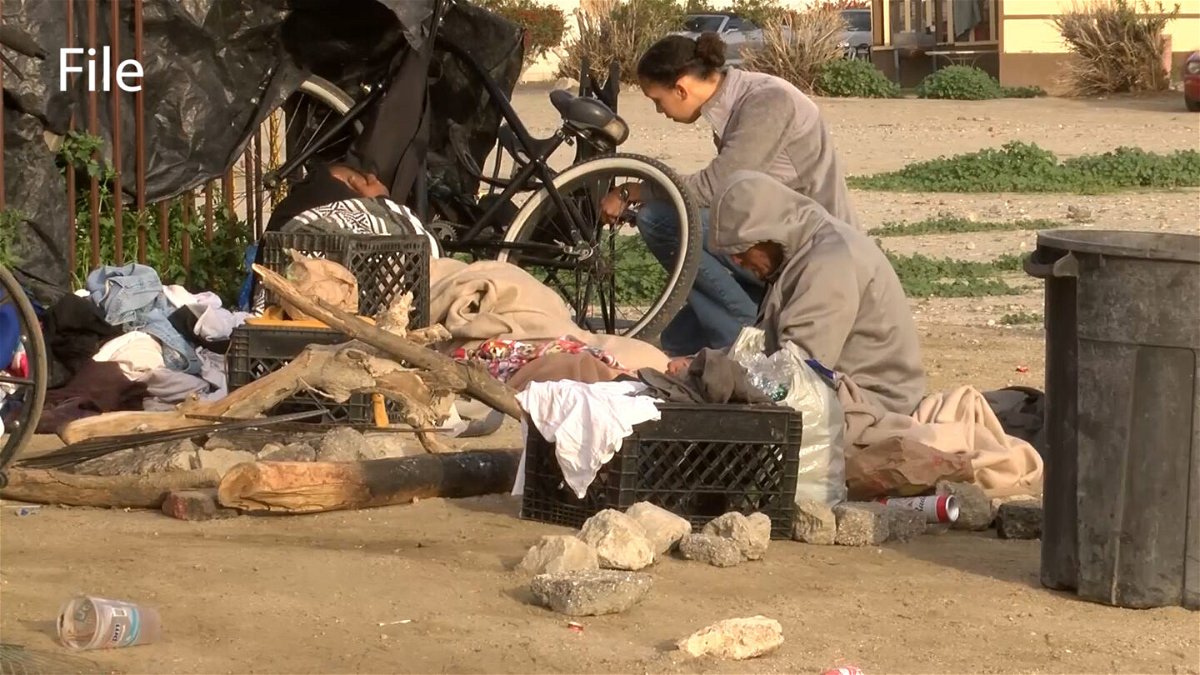CARE court to help mentally ill residents facing homelessness

Beginning next month, Riverside County health officials, in coordination with the Superior Court, will have additional potential avenues to treat mentally ill individuals who are on the streets, at risk of homelessness, or likely to end up behind bars.
The Community Assistance, Recovery & Empowerment (CARE) Act, signed into law as Senate Bill 1338 last September, will take effect Oct. 1 and establish new protocols for placing those with behavioral health disorders in treatment regimens operated by the county.
"Riverside County's commitment to behavioral health treatment is unwavering,'' Board of Supervisors Chairman Kevin Jeffries said. "While we continue to seek voluntary treatment at all times, this new `CARE Court' tool may put us in a better position to help more people -- those who just may need it the most."
Riverside County was included with Glenn, Orange, San Diego, San Francisco, Stanislaus and Tuolumne counties in being mandated by the state to initiate CARE programs this fall. California's remaining counties will be required to establish guidelines and protocols by December 2024.
The Legislature allocated $39.5 million in General Fund appropriations to support CARE Act applications in the current fiscal year. Ongoing funds will be generated, in part, by the imposition of fines on counties that don't comply with provisions of the act.
A so-called CARE Court will serve as the conduit through which treatment plans are set up for mentally ill county residents.
The court will operate similarly to other "diversion'' programs already in place in Riverside and other counties, such as the Veterans Court, which permits individuals with military backgrounds to have their non-violent cases disposed of outside the standard criminal adjudication process."
"The CARE Act is one more way in which the court can help to ensure that eligible individuals are provided with the services and support necessary to address their needs,'' Superior Court Presiding Judge Judith Clark said. "We look forward to working with each of our collaborative county partners to deliver this program to the Riverside County community."
The aim is to prevent mentally ill people from falling through the cracks of the social service system and ending up in a correctional facility or living on the streets without any help toward rehabilitation.
Through the civil court process, relatives or close friends of mentally ill residents, doctors who have interfaced with them, law enforcement officials and other first responders can initiate CARE Act cases by submitting referrals or petitions seeking to commence proceedings. The idea is to establish customized treatment plans, using all available public resources.
The Riverside University Health System-Department of Behavioral Health would serve as the lead agency responding to cases.
According to the legislation, qualifying recipients include those who are "unlikely to survive safely in the community without (mental health) supervision,'' and those "in need of services ... to prevent a relapse or
deterioration that would likely result in grave disability or serious harm to the person or to others."
Judges can also refer cases to the CARE Court if they determine a criminal defendant is "mentally incompetent."
In some cases, the process will be involuntary, and the CARE Court defendant would be entitled to representation by private or court-appointed counsel.
A "CARE agreement" would be necessary before any treatment plan could move forward, with progress hearings scheduled to determine whether the party is benefiting from treatment or cannot be helped. A treatment plan would specify psychiatric services, including "stabilization medications," bridge or transitional housing available for the party, as well as other social safety net options.
All proceedings are slated to be conducted confidentially, with members of the general public barred from observing them.
Department 12 of the Riverside Historic Courthouse has been designated as the county CARE Court. Hearings will be held Monday to Friday in the afternoons.
The county's CARE line is 800-499-3008. Additional information is also available at ruhealth.org/behavioral-health/care-court.
